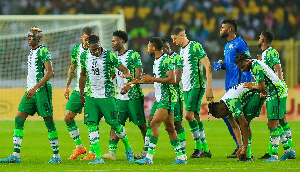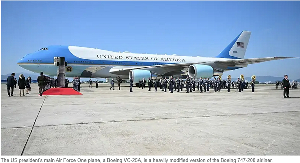Everyone needs that extra cash to manage the growing cost of living. Nowadays, in order to make some extra income, most people invest in Treasury Bills or properties, save at the banks or even play the lottery. The latter group is the focus of this Article.
The Oxford Dictionary of Current English defines lottery “as a means of raising money by selling numbered tickets and giving prizes to the holders of numbers drawn at random”.
In Ghana, lottery is patronized by people from all walks of life in spite of the stigmatization the game may have suffered, primarily as a result of religious beliefs.
Over the years however, with the modernization and sophistication of the Games and Brands, acceptance and patronage has increased to a level whereby now some unscrupulous persons have started operating lotto illegally. So how did lottery evolve in Ghana?
Evolution of Lottery in Ghana
The history of lottery in Ghana can be traced to 1958 when the then Department of National Lotteries (DNL) was established under the National Weekly Lotto Act, 1961 (ACT 94) as a Department under the Ministry of Finance. This Law was later amended by the National Weekly Lotto (Amendment Law), 1989 (PNDCL 223) and Section 15 of the Ghana Legion Decree, 1974 (NRCD 285).
PNDC Law 223 allowed participation by private persons in Lottery operations under the District Assemblies. These Private Lotto operators had to obtain operating licenses from the District Assemblies and apply part of their profits to support activities of the District Administrations within which they operated.
The idea was to help the Districts generate revenue through license fees and taxes to government. This objective was however not achieved in that the private lotto operators failed to honor their obligations, resulting in loss of revenue to the state over the period.
This development necessitated the formation of one body to operate and regulate Lottery in Ghana in conformity with international best practices, where Gaming or Lottery Regulations are the preserve of the State.
The passage of the National Lotto Act, 2006 (Act 722) granted autonomy to the Department of National Lotteries (DNL) which became known as the National Lottery Authority (NLA), with a sole mandate to regulate, supervise, conduct and manage National Lotto and to provide for related matters. Section 2(4) of Act 722 also empowers NLA to operate Games of Chance in addition to Lottery. A governing regulation, the Lottery Regulations, 2008 (L.I. 1948), was also passed to regulate NLA's Operations.
NLA (then DNL) commenced operations with its flagship game, the 5/90 Fixed Odds, in 1962 when the first draw was held. To date NLA still operates the 5/90 Fixed Odds Game which has been in operation since its inception over 50 years ago.
Currently, the 5/90 Game has six branded products, namely:
1. Monday Special; 2. Lucky Tuesday; 3. Midweek; 4. Fortune Thursday; 5. Friday Bonanza, , 6. National Weekly Lotto (the primary product and flagship brand played on Saturdays).
In February 2015, NLA also introduced SoccerCash, a dividend game, onto the Ghanaian lottery market. This Game was developed in collaboration with the Ministry of Youth and Sports, to promote sports development in the country.
NLA also created the Caritas Lottery Platform to grant the opportunity to third party Commercial and Financial entities to collaborate with NLA in promoting their businesses through lottery games.
From its inception, NLA operated a fully manual system until 2006 when it started automating its operations by introducing Point of Sale Terminals (POSTs) or automated machines which generate real time lottery tickets upon purchase.
In 2011, NLA fully automated its entire operations and, in the process, distributed 10,000 POSTs to its Lotto Marketing Companies (LMCs) and Retailers to dispense lotto tickets. In August 2015, NLA further procured 7,400 additional POSTs in a bid to revitalize its operations, drive efficiencies and to increase market coverage.
As part of efforts aimed at boosting efficiency and to also expand NLA's scope of coverage, NLA has contracted two Technical Service Providers, SIMNET Ghana Limited and Lots Services Ghana Limited, to provide backend systems support.
What Constitutes Illegal Lottery?
NLA's move to a fully automated system means that anyone still operating the manual system (writing out numbers on sheets of papers) is operating illegal lottery, popularly referred to as Banker to Banker.
Players are in most cases deceived by these illegal lottery operators into believing that both Banker to Banker and NLA Games are the same; this assertion is far from the truth.
NLA’s games are dispensed by NLA licensed Retailers or Lotto Marketing Companies from NLA branded Point of Sale Terminals. NLA Retailers can usually be identified in their NLA branded kiosks, containers, umbrellas or highlighters or an NLA logo from their point of sale. Ultimately one thing that distinguishes NLA tickets from that of the Banker to Banker operation is the fact that the NLA electronic ticket printout has Ghana’s Coat Of Arms and NLA’s logo embossed on it with the inscription, National Lottery Authority all over it.
Why You Should Choose NLA Over Banker To Banker
Playing NLA games guarantees player security as players are assured of prompt payments, no matter how big the win is, unlike Banker to Banker operators who always abscond whenever there are big wins or at best are likely to opt to pay paltry sums in the face of such big wins.
Another technique employed by Banker to Banker operators is to entice unsuspecting players with electronic gadgets like phones, tablets and power banks. They offer this to vulnerable players as a token and then negotiate with them in a bid to delay payment. Once accepted, the gift is used as a gag preventing the winner from making complaints when the payment is not forthcoming and eventually, they fail to pay the winners.
Also on days of heavy stakes, Banker to Banker operators insure themselves by playing NLA Games; this is due to the well known and accepted fact that NLA pays promptly and always pays winners no matter the size of the win amount.
This act by Banker to Banker operators actually defeats the falsehood they peddle that NLA’s is able to manipulate wins by taking out numbers that are heavily staked on any particular day. The question to ponder on is, if the Banker to Banker operator plays NLA’s games whenever there are heavy stakes because he is aware he will be paid promptly, no matter the size of the win, and yet the same Banker to Banker operator will still not pay a winning ticked played on that platform, is one not better off playing with NLA? The answer to this is a definite YES.
So why not join the winning team now?
NLA’s Draws are credible and transparent and are always held in the presence of the general public with both external and internal auditors present to ensure integrity of the draws. Stringent measures are in put place to ensure an impenetrable process. Rumors peddled by Banker to Banker operators of manipulation are absolutely false.
Recently a player from Asankragua won an amount of Three hundred and forty two thousand Ghana cedis (GHs 342,000.00) from playing the NLA game and was paid promptly without any qualms. In the same way, all genuine winners of NLA games have received prompt and full payment, attesting to NLA’s credibility in the payment of wins.
With NLA, even if you do not win, you still get to benefit as an individual or a member of a community. This is because NLA contributes to the Consolidated Fund for National Development. As a principal contributor, NLA has made substantial contributions to the Consolidated Fund over the years, and in 2015 paid Thirty three million, two hundred and seventy Ghana cedis (GHs33, 270.00) to the Fund, thus exceeding its target set for the year.
NLA also implements a vibrant Corporate Social Responsibility (CSR) Programme that has invested immensely in education, health and culture.
Persons with disability and vulnerable groups have also benefited from NLA’S CSR interventions.
In the case of Banker to Banker, all monies go into the private pockets of the operators who do not even pay any taxes to government.
Offences Under The Lotto Act 722
Anyone caught operating illegal lottery is liable on summary conviction to a fine of not more than two thousand and five hundred penalty units or imprisonment for a term of not more than three years or both.
Persons caught patronizing Banker to Banker products are equally liable and could be prosecuted.
The law also allows for confiscation to the State every object or article used in committing, facilitating the commission or which in any respect relates to the commission of the offence.
NLA, with the assistance from the Ghana Police, will continue to pursue and arrest illegal lottery operators across the country, and the laws will be rigidly enforced to curb these illegal activities.
All those engaged in the illegal lotto business are encouraged to read Act 722 and regularise their businesses through arrangements with NLA.
Opinions of Wednesday, 8 June 2016
Columnist: National Lottery Authority













